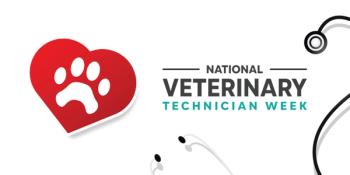
How do we crack the conflict code?
Ask the dvm360/VHMA Practice Manager of the Year: Our veterinary practice doesn't handle conflict well. Is this normal?
Q. I'm a practice manager, and I can admit that our team doesn't always handle conflict well. Any pointers?
I've seen my share of toxic attitudes and unresolved conflicts that hurt morale, efficiency and even patient care. Here's an example of a passive-aggressive response to conflict I shared at
Conflict is a reality in just about everyone's life. And if you're a leader or aspire to a leadership role, much of your success will depend on how well you respond to conflict among those you lead or serve. Whether you manage a staff of two or 200, veterinary practice managers are expected to address and equitably resolve many conflict situations in the course of a month, a week, or even a day.
The ability to manage conflict is often viewed as more of an art than a skill, but it is an art form you can master with the right tools. Although some workplace conflicts may necessitate the involvement of a professional, such as a trained mediator or arbitrator, many more conflicts depend on your intervention as a manager.
When faced with conflict, we often respond in one of four ways that are not wholly constructive:
1. Avoidance
We avoid the conflict, either out of fear of confrontation or as a means of controlling the situation.
2. Accommodation
We concede arguments and issues to others as a means of smoothing over our relationship, though often at the expense of satisfying our own needs and concerns.
3. Competition
We press to achieve our own goals in the conflict at the expense of having a positive relationship with the other party.
4. Compromise
Even when we face up to our conflicts, such as through negotiation, we often settle for compromise solutions. We give a little to get a little. Though this may be an appropriate strategy at times, it means we end up only partly satisfied.
While these four responses can be appropriate under the right circumstances, they suggest our natural tendency is to view conflict negatively. Yet, when viewed another way, the existence of conflict can serve as a positive indicator, signaling opportunities for change and growth.
A fifth and more constructive response to conflict is ...
5. Collaborate
It's said that two heads are better than one, so when true collaborative strategies take place, there's bound to be improved communication and understanding, more creative solutions, increased productivity and a healthier relationship. Through collaboration, individuals realize increased confidence in their ability to communicate, to interact with others and to solve problems. By facing situations directly and maturely, rather than indirectly or not at all, esteem grows. Teams encouraged to deal with conflict in this way experience improved morale and teamwork.
Ready to fix it? Start at a
Judi Bailey, CVPM, is the hospital administrator at Loving Hands Animal Clinic and Pet Resort in Alpharetta, Georgia, and the founder and president of the Georgia Veterinary Managers Association. She is also the 2016 dvm360/VHMA Practice Manager of the Year.
Newsletter
From exam room tips to practice management insights, get trusted veterinary news delivered straight to your inbox—subscribe to dvm360.






